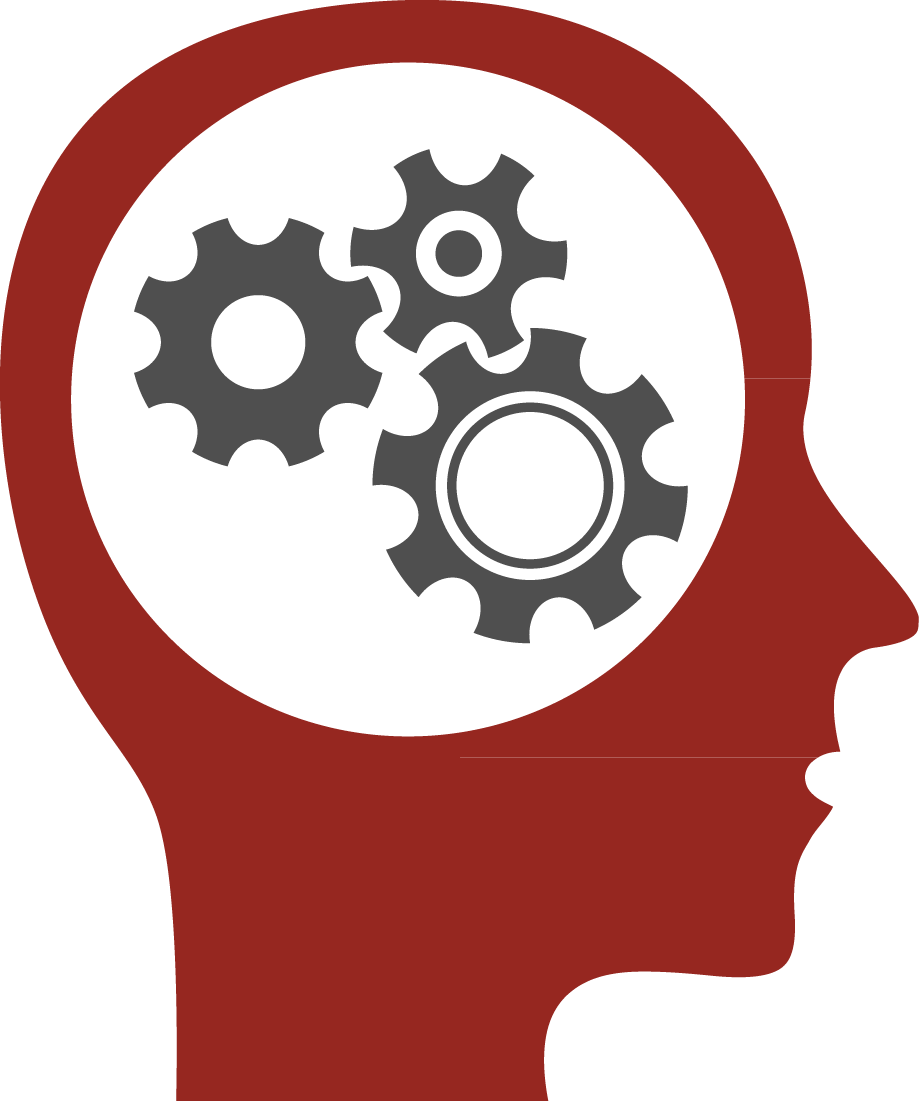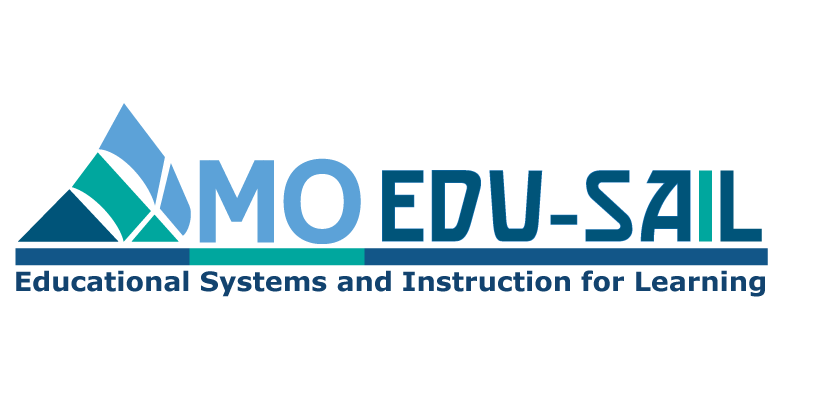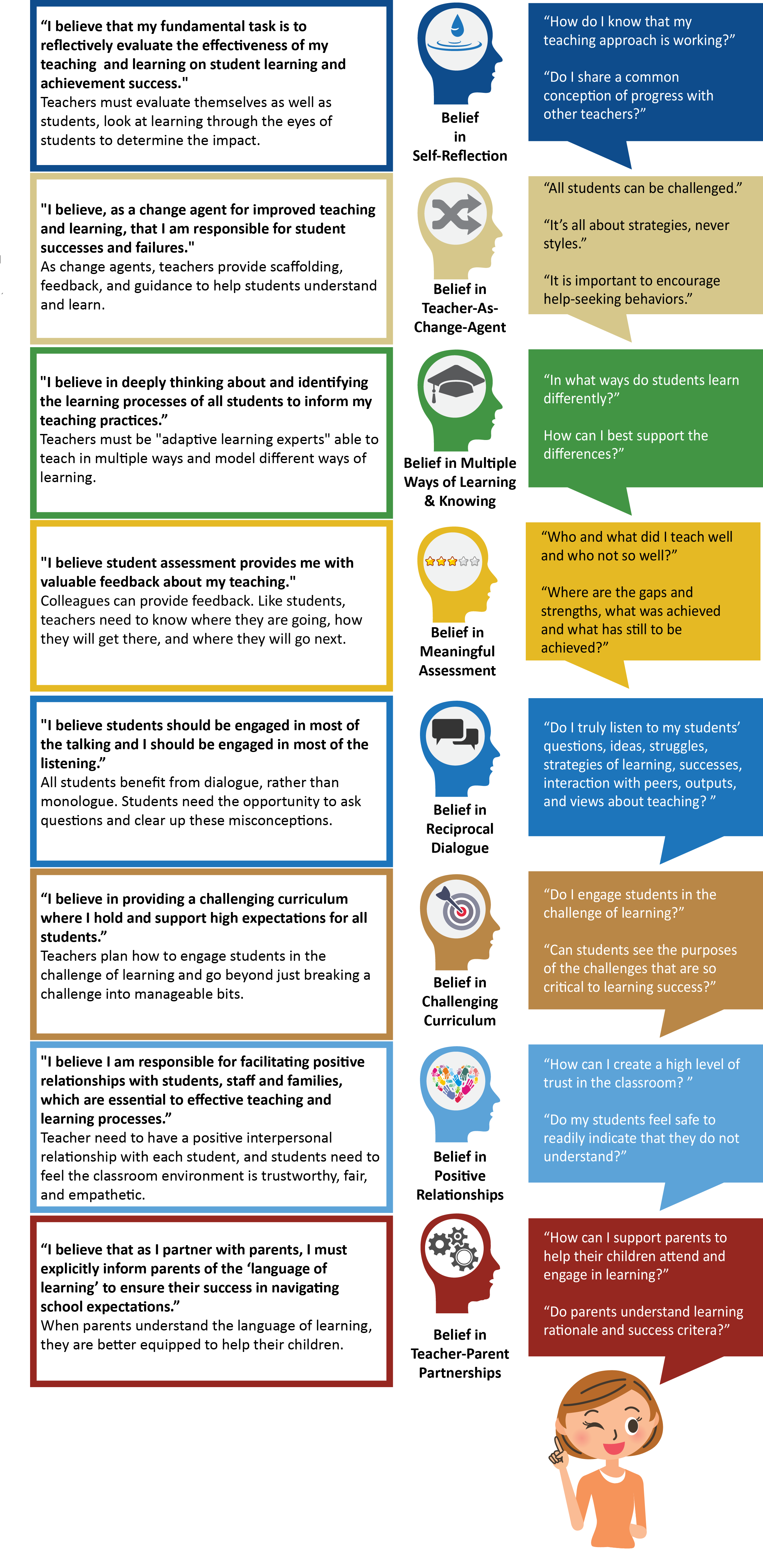
At the heart of teaching and learning are the beliefs, dispositions and attitudes that teachers hold regarding students, curriculum and the daily life of the classroom. Educator beliefs are highly influential on student success, as such beliefs guide teacher decision-making and instructional processes. It is believed that educators who possess particular teacher beliefs are high-impact educators who create ideal learning environments for all students—especially diverse learners. The work of John Hattie (Hattie, 2009; Hattie & Yates, 2014) influenced the adoption of the following 8 essential educator beliefs:
The interview publication can be downloaded at http://www.edu.gov.on.ca/eng/policyfunding/leadership/spring2013.pdf


